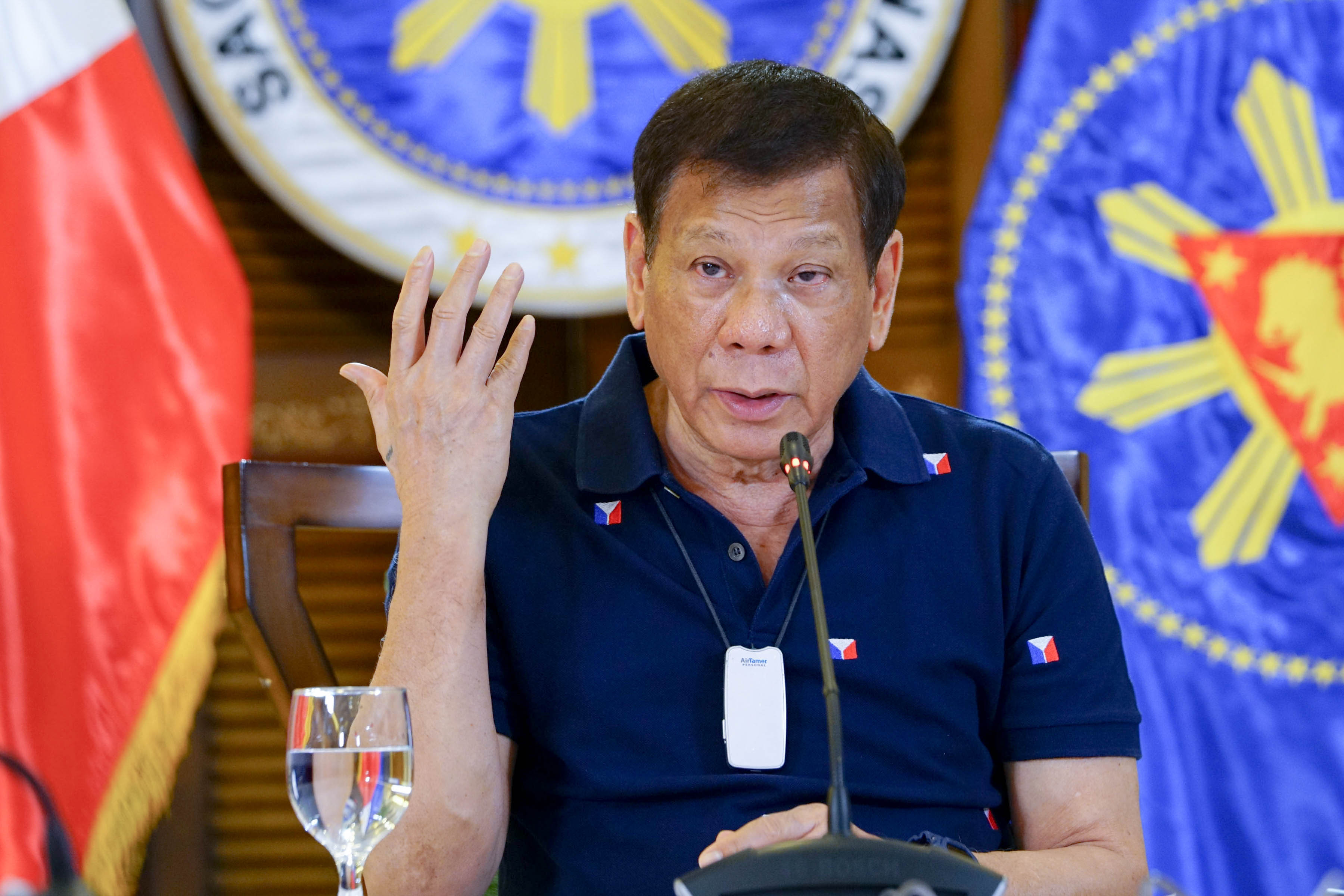SUMMARY
This is AI generated summarization, which may have errors. For context, always refer to the full article.

MANILA, Philippines – In the middle of the coronavirus health crisis, President Rodrigo Duterte signed into law a bill giving the government more powers to act against persons or groups falling under what critics say is a dangerous and vague definition of terrorism.
This was announced by Interior Secretary Eduardo Año on Friday, July 3, in a message to reporters. It was also confirmed by Executive Secretary Salvador Medialdea to Rappler.
The anti-terrorism law is now Republic Act No 11479. A copy of the signed measure was sent to Malacañang reporters. Read it below.
Duterte signed the bill into law despite Malacañang legal minds pointing out “strong cautionary comments” from within the Cabinet about certain provisions, said an official source.
These comments were in the legal review and recommendation done by the Deputy Executive Secretary for Legal Affairs (DESLA) on the anti-terrorism bill. The DESLA review was the step before Executive Secretary Salvador Medialdea’s final review of the bill before it was handed to Duterte for his decision.
A day before Duterte’s signing of the measure was announced, the Bangsamoro government urged him to veto the bill, fearing it would lead to more discrimination and abuse of Mindanaoan Muslims.
In fact, mere minutes before Año announced Duterte’s decision, Presidential Spokesman Harry Roque said the President would “take into account” the Bangsamoro leaders’ appeal before acting on the bill.
The new measure had been met by intense opposition from several sectors when Duterte certified the bill as urgent and as the House of Representatives deliberated the controversial measure.
Congress transmitted the enrolled anti-terrorism bill to Malacañang on June 9, following public protests against the measure, and after a number of lawmakers withdrew their support for it.
An advocacy of many retired generals, the proposed measure gained momentum during the Duterte administration, with the Chief Executive certifying it as urgent legislation.
Retired generals and police form a significant and influential bloc in Duterte’s Cabinet. (READ: Duterte’s top military, police appointees)
Why dangerous? With Duterte’s signature, the measure is now a full-fledged law that will become effective 15 days after its publication in newspapers with nationwide circulation. (READ: ‘Terror law’: The pet bill of the generals)
This means the Anti-Terrorism Council (ATC), composed of Duterte Cabinet officials, will have the power to initiate actions against more people, not just suspected terrorists or terrorists, and arrest them even without warrants. (READ: EXPLAINER: Comparing dangers in old law and anti-terror bill)
This is because the new law adds the following as crimes: threatening, planning, training, facilitating, proposing, and inciting to terrorism.
It’s the “inciting to terrorism” bit that worries lawyers and human rights groups because it involves free speech.
Government officials who want to suppress speeches, proclamations, banners, or writings of critics could use this new crime.
The law’s definition of terrorism is “broad and vague” enough that it could include expressions of dissent or criticism against the government, said law experts.
Defenders of the law say this won’t happen because of a caveat in its definition of terrorism that excludes “advocacy, protest, dissent, stoppage of work, industrial or mass action, and other similar exercises of civil and political rights.” ([ANALYSIS] The Anti-Terror Act is worse than Martial Law)
But law groups said the definition still ensures that the government can define acts of dissent and protest as terrorism if the government deems the acts are intended to “create a serious risk to public safety.”
The law also allows law enforcers to detain a suspected terrorist for up to 24 days, much longer than the 3-day limit in the old anti-terrorism law. The government can also conduct surveillance of a suspected terrorist for up to 60 days, instead of 30.
On top of this, law enforcers who mistakenly arrest someone for terrorism will no longer be required to pay damages for the wrongful arrest.
Protests, warnings. Business groups, legal experts, human rights groups, journalists, and universities mobilized to denounce the law and urge lawmakers to reconsider it.
Retired Supreme Court senior justice Antonio Carpio said the measure could be challenged before the Supreme Court because of its unconstitutional provisions.
Mindanaoan lawmakers and Bangsamoro lawyers and students also oppose the bill even if the Duterte administration insisted that the measure will benefit their terror-stricken region the most. (READ: Mindanao lawmakers: Anti-terror bill will further incite violence, not end terrorism)
Jesuit priests and La Salle brothers banded together to warn the public of how the law could be used to oppress sectors of society.
Business groups, including the Makati Business Club and the Management Association of the Philippines, said the law was unnecessary and that the Duterte administration should instead focus on the country’s economic recovery from the coronavirus pandemic.
Students and activisists joined physical protests in Cebu City and Quezon City despite a ban on mass gatherings. In the Cebu City rally, 8 were arrested and eventually released. – Rappler.com
Add a comment
How does this make you feel?
There are no comments yet. Add your comment to start the conversation.